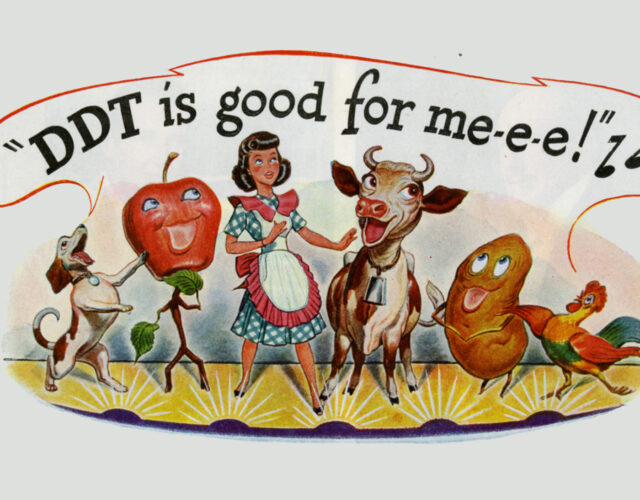Americans have had a long, complicated relationship with the pesticide DDT, or dichloro-diphenyl-trichloroethane, if you want to get fancy. First, we loved it; then we hated it; then we realized it might not be as bad as we thought. But we’ll never restore it to its former glory. And couldn’t you say the same about America’s once-favorite pop star?
We had a hunch that the usual narrative about DDT’s rise and fall left a few things out, so we talked to historian and CHF fellow Elena Conis. She has been discovering little-known pieces of this story one dusty letter at a time.
But first, our associate producer Rigoberto Hernandez checks out some of CHF’s own DDT cans—that’s right, we have a DDT collection—and talks to the retired exterminator who donated them.
Credits
Hosts: Michal Meyer and Bob Kenworthy
Guest: Elena Conis
Producer: Mariel Carr
Associate Producer: Rigoberto Hernandez
Additional music courtesy of the Audio Network




